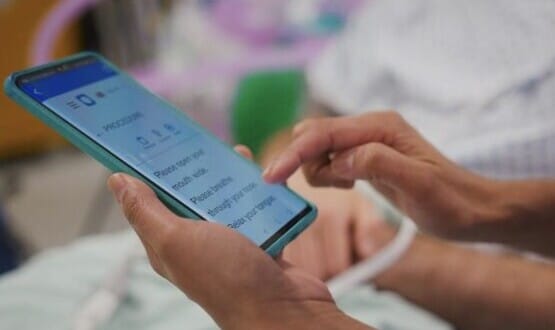Digital Health’s monthly roundup of contracts and go lives
- 12 May 2023

Digital Health’s monthly roundup of contacts and go lives features Suffolk and north east Essex maternity services deploying CardMedic and Sunderland Royal Hospital rolling out digital portering.
Suffolk and north east Essex maternity services go live with CardMedic
The final week of April saw maternity services across Suffolk and north east Essex deploy the CardMedic communications app to improve access across the entire maternity pathway.
The app is being used to improve the experiences for all those using the regional integrated care system (ICS) and to support the ambitions of the area to fulfil NHS England’s Core20PLUS5 framework.
It helps to improve confidence in care services as well as remove communication barriers. It allows users to communicate freely with healthcare professionals regardless of any additional needs, language barriers or cognitive impairments.
The app is being used by multidisciplinary teams, including midwives, obstetricians and other clinical staff, as well as administrative teams at West Suffolk Hospital, Ipswich Hospital and Colchester Hospital.
It has been in use since November 2022 and is being used to support shared decision-making for expectant parents.
Suffolk Primary Care partners with Aide Health to support asthma patients
More news from Suffolk came at the end of April as Suffolk Primary Care partnered with health tech start-up Aide Health for a 12-month programme supporting patients with asthma, designed to improve preventer inhaler use and stop the overuse of reliever inhalers.
Reliever inhalers (short-acting beta2-agonist or SABA), which unlike preventer inhalers do not treat the underlying causes of asthma, are being overused across the UK.
Research suggests that 83% of all SABA inhalers are prescribed to asthmatic patients who are potentially overusing the reliever medication. Asthma death rates in the UK are amongst the highest in Europe.
Using natural language, Aide has short, daily conversations with patients to help them manage their asthma day-to-day by reminding them when and how to use their preventer inhaler. In turn, this should reduce the need to use the SABA inhaler.
Aide demonstrated its success in a recent NHS pilot in North Yorkshire, which targeted those with asthma as well as people with type 2 diabetes. Aide users achieved an average adherence of 75%. This is significantly greater than the 40-50% average adherence to medication in general.
iPLATO awarded SBRI contract to improve bowel cancer screening rates
The beginning of May saw iPLATO announce that it has been awarded a £1.7 million research contract by Small Business Research Initiative (SBRI) Healthcare to improve bowel cancer screening rates across South East London.
The programme will address health inequalities by focusing on groups known to be less engaged with screening, forming a blueprint for potential national adoption.
It will be delivered in partnership with the South East London Cancer Alliance (SELCA) and local community leaders, academics, and primary care professionals.
The programme will seek to establish the optimal communication channels and content to engage hard-to-reach groups using iPLATO’s platform, which will provide tailored education through mobile messaging, ensuring scalability and privacy.
Yorkshire Ambulance Service go live with Mobile Data and Vehicle Solution
Early May also saw the NHS Ambulance Radio Programme (ARP) announce that Yorkshire Ambulance Service NHS Trust has gone live with the new Mobile Data and Vehicle Solution (MDVS) after a successful pilot phase.
Rollout has commenced across the fleet of over 600 ambulances and response vehicles. This is part of the Ambulance Radio Programme’s national deployment, a new National Mobilisation Application (which includes Sat Nav functionality) and new hardware accessing both LTE and Airwave networks ensuring critical communications services in the vehicles.
The vehicles will be used throughout all Ambulance Services in England and the Wales Ambulance Service. Next to rollout MDVS will be North West Ambulance, North East Ambulance and Wales Ambulance Service NHS Trusts – all due to commence within the next three months.
Sunderland Royal Hospital rolls out digital portering
Lastly and most recently, Sunderland Royal Hospital introduced MyPorter, a task management software system that supports the portering function, following a successful trial within the radiology department of the hospital.
The system was initiated by City Hospitals Independent Commercial Enterprises Limited (CHoICE) – a subsidiary of South Tyneside and Sunderland NHS Foundation Trust.
MyPorter, from GlobalView Systems, offers a solution for monitoring the status and progression of portering tasks. It also improves communication and cooperation between the portering team and the radiology team which is helping to improve patient flow.
In addition, the system is allowing Sunderland to identify and plan for peaks in demand. This allows tasks to be managed more efficiently, the right ratio of staff to be in place and delivers insights for future demand planning.



